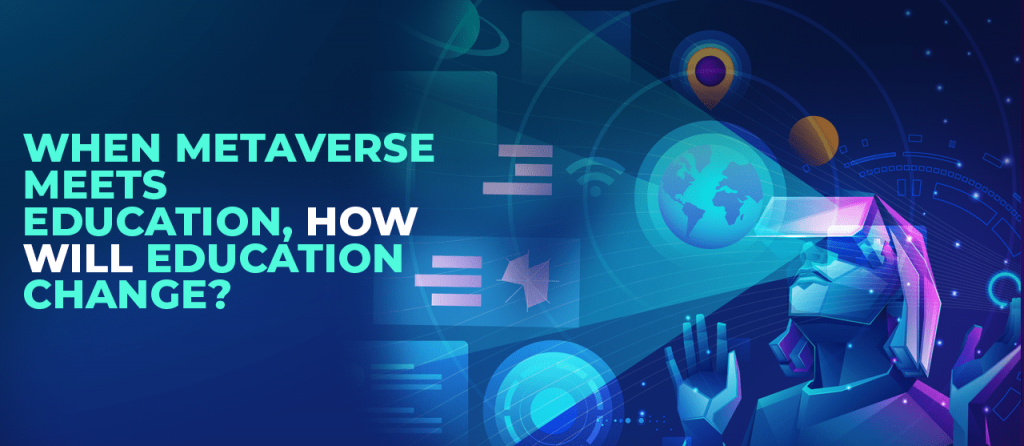How the Metaverse Will Revolutionize Education?

Are you familiar with the term “metaverse”? It refers to a virtual reality (VR) space where users can interact with a computer-generated environment and other users in real-time. While the concept of a metaverse is not new, recent advances in technology have made it possible to create more immersive and interactive virtual worlds that are becoming increasingly popular. In this article, we’ll explore how the metaverse will impact the way we learn and educate.
What is the Metaverse?
The metaverse is not a single platform or application; it’s a collection of different virtual worlds that can be accessed through various devices. These virtual worlds can be anything from a game to a social network to a simulation of a real-world environment. The metaverse is a place where users can create their own avatars, interact with other users, and interact with virtual objects.
How the Metaverse Will Change Education
The metaverse has the potential to revolutionize the way we learn and educate. Here are some ways it could do that:
1. More Immersive Learning
The metaverse will allow for a more immersive and engaging learning experience. For example, instead of reading about a historical event in a textbook, students could visit a virtual simulation of the event and interact with it. This would make the learning experience more memorable and allow students to gain a deeper understanding of the subject matter.
2. Access to Experts and Resources
The metaverse will enable students to interact with experts from all over the world. For example, a student studying marine biology could interact with a marine biologist who is on the other side of the world. The metaverse will also provide access to a wealth of educational resources that may not be available in traditional classrooms.
3. Personalized Learning
The metaverse will allow for more personalized learning experiences. For example, a student who is struggling with a particular subject could receive personalized tutoring from an AI tutor. The AI tutor could analyze the student’s learning style and adapt the teaching methods to suit their needs.
4. Collaborative Learning
The metaverse will enable collaborative learning experiences. For example, students could work together on a project in a virtual environment. This would allow for more creativity and collaboration than traditional classroom settings.
Challenges and Limitations
While the metaverse has the potential to revolutionize education, there are also some challenges and limitations that need to be addressed. Here are a few:
1. Cost
Creating and maintaining virtual worlds can be expensive. This could limit access to the metaverse for some students and schools.
2. Technical Requirements
Accessing the metaverse requires certain technical requirements, such as a high-speed internet connection and a VR headset. This could limit access for some students.
3. Safety and Security
As with any online environment, there are concerns around safety and security in the metaverse. Schools and educators will need to ensure that students are safe and protected while using the metaverse.
Conclusion
The metaverse has the potential to revolutionize education by providing more immersive, engaging, and personalized learning experiences. While there are some challenges and limitations, the benefits of the metaverse in education cannot be ignored. As technology continues to advance and virtual worlds become more sophisticated, we can expect to see the metaverse play an increasingly important role in the way we learn and educate.
Email- contact@devopsschool.com

 Starting: 1st of Every Month
Starting: 1st of Every Month  +91 8409492687
+91 8409492687  Contact@DevOpsSchool.com
Contact@DevOpsSchool.com
